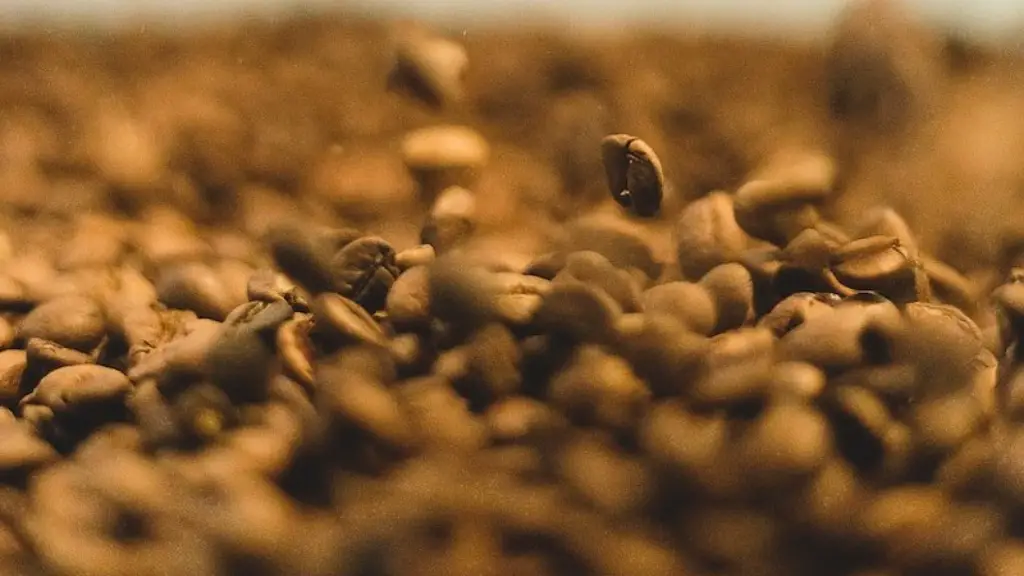The Physical Effects of Drinking Coffee
At a high level, it is well known that coffee is an invigorating drink that helps fuel productivity and keeps people awake. But what are the physical effects of drinking coffee and when can people begin to drink it? From a medical standpoint, there is some evidence that states young children should not drink coffee as it can have various effects on their bodies.
The caffeine content in coffee is one of the main factors that can have an influence on the body, especially when it comes to the age at which it can be enjoyed. The caffeine in coffee acts as a stimulant and is thought to increase alertness and awareness which is why it is so popular. It has also been linked with improved physical and mental performance, as well as improved memory.
However, the effects of caffeine on young children can be quite concerning. Caffeine can cause issues such as sleep disruption, irritability and restlessness. It can also increase heart rate and affect blood pressure.
The Recommended Age for Drinking Coffee
Definitively establishing an exact age when people can start drinking coffee can be difficult, as it depends on a range of factors including the metabolic rate of the individual and their overall health. But a general rule of thumb is that children should not have more than a limited amount of caffeine before the age of 12.
The American Academy of Pediatrics supports this recommendation and states that young children should not have any more than 100mg of caffeine per day. It is also a good idea to check with a pediatrician before introducing coffee into a child’s diet as each individual has their own unique health factors to consider.
Types of Coffee Suitable for Kids
When young children can start drinking coffee is usually determined by the types of coffee drinks they are consuming.
There are a number of coffee beverages that are specifically designed to appeal to children and act as a gentler version of the original. These often contain less caffeine than the regular versions and come in varieties such as cold-brew coffee and iced lattes. These types of coffee are also often flavored with sweeteners, such as syrup or vanilla or even with milk or cream, to make them more interesting for younger people.
Tips for Managing Drinking Coffee in Young Children
It is important to remember that coffee is not entirely bad for young children and can even be beneficial in moderation when they are an appropriate age. It can help them feel alert and can improve their concentration while they are studying or working.
When introducing coffee to children it is important to ensure it is used in moderation. Limits can be put in place, such as one cup per day or no coffee after midday, to avoid the potential negative effects of caffeine. Young people should also be informed about the potential effects of drinking coffee and any possible health concerns.
The Potential Social Effects of Drinking Coffee
Drinking coffee can be a social activity and young people may feel like they are missing out when they are unable to participate. It is important to consider this when deciding when they can have their first cup. As teenagers become more independent it is also important to ensure they are having caffeinated drinks in suitable social settings without getting into any kind of trouble.
Educating Teenagers on the Benefits of Coffee
When young people are ready to try coffee, it can be blended with milk, sweetened with a flavored syrup, or made with just an espresso shot, depending on the individual preference. Educating young people on coffee and teaching them about the positive effects coffee can have can help make it a positive experience.
In addition, making sure young people understand any potential risks involved with drinking coffee and setting limits on how much they can drink can also be beneficial.
Making Coffee a Part of a Balanced Diet
When children reach an appropriate age, it is important that their diet reflects this and that coffee is just one component of a healthy lifestyle. As well as drinking coffee, teenagers should be encouraged to eat a variety of healthy food and exercise regularly.
Coffee should not be seen as something that needs to be avoided altogether, but rather as a part of a healthy lifestyle. When this is done right, it can be a great way for young people to start their day and gain energy to get through their day.
Coffee Alternatives for Young People
There are many alternatives to coffee that are suitable for young people, such as herbal teas, hot chocolate and juice. These can still provide stimulant effects and have less caffeine than coffee. Then there are also a variety of cold drinks available that contain no caffeine, such as water and flavored water, smoothies and milkshakes.
Introducing these drinks to young people before introducing coffee can help to prevent overconsumption and make sure that coffee does not become an essential part of their diet.
Summary
Ultimately, the age when young people can start drinking coffee depends on a variety of factors and should be considered on an individual basis, taking into account the potential effects of caffeine on the body and the social implications associated with drinking it. When kids reach the appropriate age, educating them on the positive and negative effects of coffee and introducing it as part of a balanced diet are important factors to consider. In addition, there are also a variety of alternatives to coffee that young people can enjoy.


